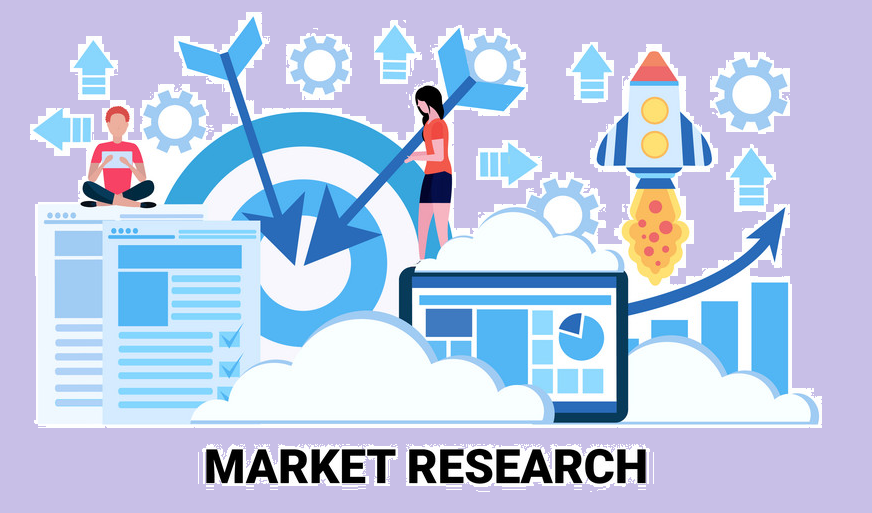What is Data Integration? - A Beginner's Guide
-
 By Sushmith
By Sushmith - Published on Nov 7 2022

Table of Contents
Introduction to data integration
Data Integration is a process in the field of data science that deals with the study of data and the integration of information. It is the process of compiling multiple business data sets into a single, unified data set.
The data repository or the data warehouses hold these unified and compiled data sets. These methods are followed to preserve and secure the data for future comparisons and processing.
The repository holding the data will be responsible for the intake of data from internal and external resources. Digital businesses rely on these data sets, and integrated business data helps boost business efficiency.
Data architects help in discretizing the data from the data sources. This helps data engineers design simplified data integration software.
What is Data Integration?
The term Data Integration refers to the process in data science and analytics that deals with the integration of multiple data sets into a single unified data set.

The unified viewing of integrated data is one of the main components of data management and business processes. The importance of Big Data Integration in business processing continues to grow.
Data Integration is also one of the most practiced concepts in the field of data science and data management. Developers in the field design integration tools and software programs that help organizations automate the integration of their business data.
Data mining concepts of data science and management provide data that is to be integrated. Such data is handed to some of the data integration tools to help them save time. These tools also provide a systematic and detailed overview based on the algorithm that is used to design these software products.
Structured Query Language (SQL) is most commonly used to design such tools. Oracle Data Integrator provides a solution that performs comprehensive data migration related to the tasks.
The SQL Server Integration Service is an entry-level data integration platform also used for solutions like data transformation. The integrated services provided help you solve complex business-related issues by offering help with data mining, data management, managing objectives, and loading and downloading files from data warehouses.
For businesses looking to integrate cloud-based applications and automate workflows across different platforms, iPaaS solutions provide a scalable and flexible alternative.
Applications of Data Integration

To understand the potential of a business, integration of data is the first step. When an organization has the ability to collect information from different available resources, the extraction of insights will become an easier task.
Important insights can help organizations have a clear idea of how to organize and schedule related tasks. Following are some examples of applications of Data Integration
Telecommunication
The necessity for quality communication makes data integration an important ingredient in the business. By integrating the data after mining, organizations will have a detailed overview of their customers. This helps them take related decisions more accurately.
Integrating data extracted from customers provides organizations and telecommunication units with a way to understand the reason behind the failure of customer service and recognize and correct it.
Data integration helps organizations run their businesses more easily. There are a lot of organizations that benefit from such solutions.
Healthcare
In the fields of healthcare and medical facilities, the need for accessing data is highly important. It is good to be provided with as much information as possible.
Integrating the data helps healthcare organizations make more precise decisions. This helps in saving time and also makes the process faster since time matters most here.
Integrating patient data also helps organizations minimize time and cost. Integrated patient data also helps in improving outcomes.
Organizations integrate patient data also to help improve the outcomes for other similar cases. This helps organizations promote good healthcare and wellness.
Marketing
In the sector of data science and technology, marketing gets to deal with more detail-oriented tasks. With no proper integrated information, communication of the marketing team and the customers would be disrupted.
In marketing, timing is the most crucial part. This helps organizations make the right decisions. It also helps in conveying the message to the customers at the right time.
Marketing data is complicated and easily leads to failures. This leads to unsuccessful campaigns and the waste of marketing budgets. The amount of data obtained from a large number of customers becomes unmanageable.
Properly integrated marketing data helps give a clear overview of marketing strategies. This also helps optimize the resources and marketing budget. Data Integration helps marketing teams keep their data organized and updated.
Finance
The risks in cybersecurity have only tended to increase in the last few years. This makes it hard for financing businesses, related organizations, and commercial sectors to wisely choose data sharing and integration.
With the data being properly integrated, financial industries like banks can identify, eliminate, and prevent potential frauds. AI-optimized technologies help financial companies mine data for such other risks.
Keeping the data integrated helps banks prevent and control fraud. Such data also helps in identifying the sources of such fraud acts. This makes banking a more easy and trusted experience for customers.
Retail
For brands providing supply lines for retail stores, it is hard to manage and organize related orders and track customer requirements. Data integration helps supply lines and retail stores provide a unified experience.
Data integration helps retailers put the data to good use, acquire insights, and grow their businesses.
Retail stores operating online handle large amounts of customer data. Integration of such data assists organizations in maintaining and organizing inventories.
Integration of data in retail sectors not only helps in organizing inventory but also helps in managing sales, supply, labor hours, and many other such data.
Data Integration tools and methods
The Data Integration concept is one of the most commonly practiced methods. The rise in the need for a tool to help organizations with data integration provided a chance for developers to develop data integration tools.
Data Integration tools are designed based on the need for integration of data. Software products designed for data integration make organizations' schedules and related decisions easier to customize or reorganize.
AI-based tools help precisely optimize and integrate the data. Depending on the algorithm used, tools provide all the information needed to check the feasibility of the data integration process.
The following are some of the most commonly used data integration tools.

Data integration provides a clear view for businesses to handle risks and manage the flow of data in the organization. To help provide insights, the integration of data must follow some methods, including the following:
Manual Data Integration is the process of performing integration manually for the data obtained from data mining.
Uniform access integration is a method of data integration that displays an original source of data that is retrieved in a uniform manner.
Common storage integration is a similar approach for the integration of business data uniformly displays the retrieved data and also makes a copy of it to store the history.
Conclusion
Data integration is a basic concept in data science and big data that deals with integrating the data preserved and acquired from different resources.
Almost every organization and business company has implemented a procedure to integrate the data that they acquire to provide a more personalized experience to customers.
AI optimized tools help enterprises make it easier to integrate business data and also provide insights that help in developing the business.
The application of data integration can be found in every sector of technology. This is because the integration of data helps minimize the budget and also optimizes time.
To integrate data in a better way, it is best to follow the methodologies. With this, it becomes more personalized and will be optimized better.
To learn and practice more data science-related topics, visit Sprintzeal’s course page and enroll in your desired course now.
Related courses from Sprintzeal:
Big Data Hadoop Certification Training Course
Subscribe to our Newsletters
Popular Programs
Trending Posts
What is Hadoop – Understanding the Framework, Modules, Ecosystem, and Uses
Last updated on Apr 17 2023
What is Big Data Analytics? - A Beginner's Guide
Last updated on Dec 28 2022
Data Structures Interview Questions
Last updated on Aug 22 2022
Top 10 Data Visualization Tips for Clear Communication
Last updated on May 31 2024
What Is Data Encryption - Types, Algorithms, Techniques & Methods
Last updated on Jul 26 2022
Data Visualization - Top Benefits and Tools
Last updated on Mar 27 2024
Categories
- Agile Management 54
- AI and Machine Learning 42
- Big Data 53
- Business Management 51
- Cloud Computing 44
- Digital Marketing 56
- Information Security 8
- IT Hardware and Networking 17
- IT Security 103
- IT Service Management 29
- Leadership and Management 1
- Microsoft Program 2
- Other 43
- Programming Language 31
- Project Management 162
- Quality Management 75
- Risk Management 8
- Workplace Skill Building 2
Trending Now
Big Data Uses Explained with Examples
ArticleData Visualization - Top Benefits and Tools
ArticleWhat is Big Data – Types, Trends and Future Explained
ArticleData Analyst Interview Questions and Answers 2024
ArticleData Science vs Data Analytics vs Big Data
ArticleData Visualization Strategy and its Importance
ArticleBig Data Guide – Explaining all Aspects 2024 (Update)
ArticleData Science Guide 2024
ArticleData Science Interview Questions and Answers 2024 (UPDATED)
ArticlePower BI Interview Questions and Answers (UPDATED)
ArticleApache Spark Interview Questions and Answers 2024
ArticleTop Hadoop Interview Questions and Answers 2024 (UPDATED)
ArticleTop DevOps Interview Questions and Answers 2025
ArticleTop Selenium Interview Questions and Answers 2024
ArticleWhy Choose Data Science for Career
ArticleSAS Interview Questions and Answers in 2024
ArticleWhat Is Data Encryption - Types, Algorithms, Techniques & Methods
ArticleHow to Become a Data Scientist - 2024 Guide
ArticleHow to Become a Data Analyst
ArticleBig Data Project Ideas Guide 2024
ArticleHow to Find the Length of List in Python?
ArticleHadoop Framework Guide
ArticleWhat is Hadoop – Understanding the Framework, Modules, Ecosystem, and Uses
ArticleBig Data Certifications in 2024
ArticleHadoop Architecture Guide 101
ArticleData Collection Methods Explained
ArticleData Collection Tools - Top List of Cutting-Edge Tools for Data Excellence
ArticleTop 10 Big Data Analytics Tools 2024
ArticleKafka vs Spark - Comparison Guide
ArticleData Structures Interview Questions
ArticleData Analysis guide
ArticleData Integration Tools and their Types in 2024
ArticleData Analysis Tools and Trends for 2024
ebookA Brief Guide to Python data structures
ArticleWhat Is Splunk? A Brief Guide To Understanding Splunk For Beginners
ArticleBig Data Engineer Salary and Job Trends in 2024
ArticleWhat is Big Data Analytics? - A Beginner's Guide
ArticleData Analyst vs Data Scientist - Key Differences
ArticleTop DBMS Interview Questions and Answers
ArticleData Science Frameworks: A Complete Guide
ArticleTop Database Interview Questions and Answers
ArticlePower BI Career Opportunities in 2025 - Explore Trending Career Options
ArticleCareer Opportunities in Data Science: Explore Top Career Options in 2024
ArticleCareer Path for Data Analyst Explained
ArticleCareer Paths in Data Analytics: Guide to Advance in Your Career
ArticleA Comprehensive Guide to Thriving Career Paths for Data Scientists
ArticleWhat is Data Visualization? A Comprehensive Guide
ArticleTop 10 Best Data Science Frameworks: For Organizations
ArticleFundamentals of Data Visualization Explained
Article15 Best Python Frameworks for Data Science in 2025
ArticleTop 10 Data Visualization Tips for Clear Communication
ArticleHow to Create Data Visualizations in Excel: A Brief Guide
ebook











